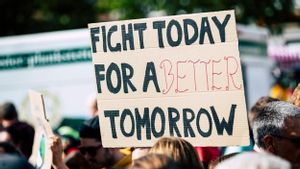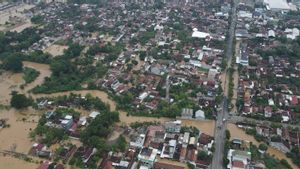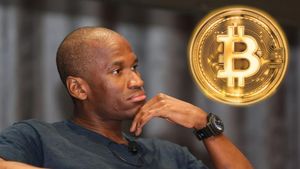JAKARTA Generation Z is labeled the most fragile generation. The habit of looking for entertainment actually makes Gen Z spend a lot of money on healing.
Self-healing has become a trend in Indonesia in the past few years, precisely since the COVID-19 pandemic. The pandemic has resulted in many people not being free to carry out activities like before because they have to follow existing health protocols.
As a result, many people feel stressed, depressed, depressed, frustrated, and often even commit suicide.
In order to escape these negative feelings, they began to try to get out of the house and do various fun things such as traveling, shopping, eating, and gathering with friends. From this situation, a new trend emerged called self-healing.
The term self-healing has actually existed for a long time, but is used as a therapeutic method carried out by psychologists and psychiatrists.
According to Mayer (2009), the word Sef was created by Dr. Jung, has a broader self-meaning of ego. While the word healing is interpreted as a process of scure or a healing process or treatment. literally, self-healing contains the meaning of self-healing.
Then, why is the term Self-healing widely used by Generation Z?
Adult clinical psychologist Nago Tejema, M.Psi said the word healing experienced a shift in meaning.Healing is no longer a process of self-healing from various feelings or problems in disturbing self.
Lately, healing justru is interpreted as an activity that is carried out to entertain themselves from the pressures they face.
"Usually by going on vacation out of town, hanging out in cafes, and more. Actually, it doesn't matter healing being a popular term, it's just that we should be able to understand the difference," Nago said.
Along with the growing popularity of the term healing, generations Y and Z are also labeled as weak generations, not strong enough to receive a burden so they always need healing.
Then there was a debate on social media that the previous generation was more resilient than the millennial generation and Z. According to psychologists, this cannot be interpreted as a weakness because each generation has different challenges.
Regarding the debate about who has a stronger mentality, this is actually due to awareness of the mental health problem which has developed in the last two to three years, especially among young people. Generations Y and Z tend to know more quickly when they have mental problems.
According to Nago, this is happening thanks to the rapid advances in technology and the rapid dissemination of information. Especially for Gen Z, as a generation close to digital technology, so they will be the first to get information and realize if something goes wrong with them.
Actually, mental disorders must exist from generation to generation, it's just that the shape and level of awareness of each generation is different. Based on various findings of articles and research, Gen Z is considered more likely to convey complaints about mental problems that are owned.
However, the awareness of the millennial generation and Z of mental health is not accompanied by good financial literacy. This is evident from the high rate of holiday healing that these generations have acted on.
According to research by hotel company RedDoorz, about 67 percent of millennial generation and Z decided to take a vacation to healing from stress. Not only that, about 41 percent of Z and millennial genes also often plan vacations without plans, aka spontaneous. This can be seen from the habit of booking rooms by H-1.
"This can be seen from the high number of tourists who ordered RedDoorz and multi-brand hotels on D-1 to the same day they stayed," said Head of Integrated Communications RedDorz Cut Nany in a release on February 24, 2024.
Generation Z's tendency to healing as a way of spending money is a concern in itself. Josua Pardede, Chief Economist of Permata Bank, said this caused Gen Z's ability to save and invest very low.
"I think financial planning for Gen Z is very important so that awareness increases. If it is only pending without investment, it will certainly have a negative impact, not only for banks but also for future lives," Josua said in a virtual press conference on February 7, 2024.
SEE ALSO:
Morning Consult research in the United States also shows that although Gen Z is relatively young with relatively low income, they often do three or more holiday trips every year. Even include their travel activities in the budget.
Josua added, Gen Z also often uses loan funds only to meet healing needs such as concerts or traveling. This can be seen from the phenomenon of many young people being entangled in loans.
Gen Z's high demand for healing is reflected in the increased consumption of transportation, communications, restaurants, and hotels.
To overcome this problem, Josua encourages banks to increase the number of products targeting young people, especially those related to financial literacy so that they can use money more wisely.
"Gen Z has a little savings or saving but wants a lot. That's why now a lot of people are entangled in loans and I think such methods are very inappropriate," he concluded.
The English, Chinese, Japanese, Arabic, and French versions are automatically generated by the AI. So there may still be inaccuracies in translating, please always see Indonesian as our main language. (system supported by DigitalSiber.id)













